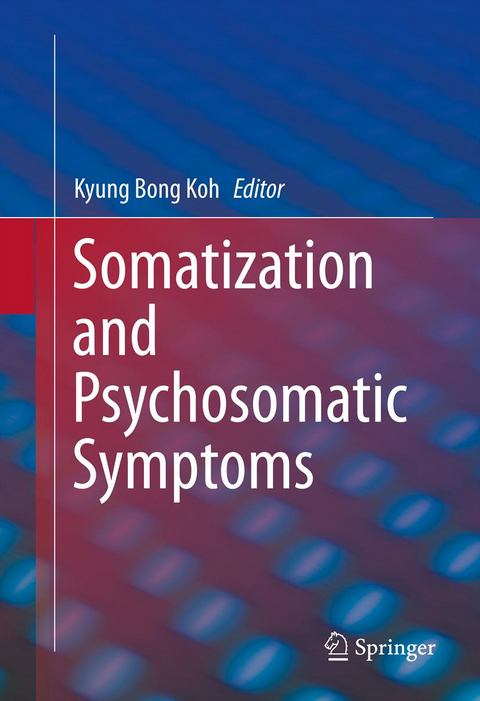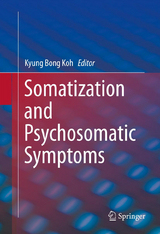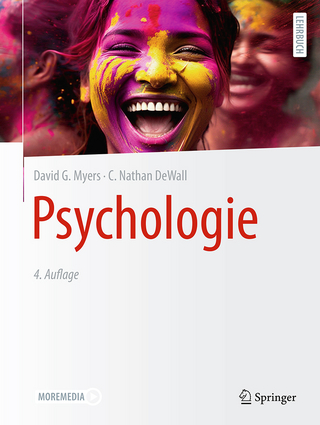Somatization and Psychosomatic Symptoms
Springer-Verlag New York Inc.
978-1-4614-7118-9 (ISBN)
This book, with contributions emanating from the 21st World Congress of Psychosomatic Medicine held in Seoul in August 2011, presents the latest evidence-based information about the mechanisms, assessment, and management of psychosomatic disorders from a biopsychosociocultural perspective. Somatization is a process characterized by excessive or inappropriate focus on physical symptoms that are medically unexplained. It is highly prevalent in primary care medicine, as somatoform (psychosomatic) disorders tend to be chronic and can cause significant personal suffering and social problems as well as financial burden.
Kyung Bong Koh, M.D., Ph.D. is a professor in the Department of Psychiatry at Yonsei University College of Medicine, Seoul, Korea. He is the author of Stress and Psychosomatic Medicine and has contributed chapters to several textbooks. His many published articles concentrate primarily on psychosomatic medicine, psychoneuroimmunology, somatization, and stress. He has developed a number of psychological instruments, including the Stress Response Inventory. He has received three academic awards for his distinguished research on the relationship between anger and somatization, immunology in anxiety disorders, and neural activity in panic disorder and somatoform disorder from the Korean Neuropsychiatric Association. He played a leading role in founding and also served as president of the Korean Society of Psychosomatic Medicine. He worked as chair of the Scientific Committee of the Society and was the first editor-in-chief of the Korean Journal of Psychosomatic Medicine. In addition, he served as chairperson of the organizing committee of the international academic meetings, such as the 13th Asian College of Psychosomatic Medicine and the 21st World Congress on Psychosomatic Medicine held in Seoul, Korea. He is a member of the International College of Psychosomatic Medicine and on the editorial board of Biopsychosocial Medicine.
Part I Basic Understanding for Somatization.- Chapter 1 Identity of Somatoform Disorders: Comparison with Depressive Disorders and Anxiety Disorders.- Part II Theoretical Approaches to Mind and Body.- Chapter 2 Toward a Philosophy of Life to Underpin Personhood in Medicine.- Part III Biopsychosociocultural Mechanisms in Psychosomatic Medicine.- Chapter 3 Genes, Memes, Culture, and Psychosomatic Medicine: An Integrative Model.-Chapter 4 Alexithymia and Somatic Symptoms.- Chapter 5 Culture and Somatic Symptoms: Hwa-byung, A Culture-Related Anger Syndrome.- Chapter 6 Molecular Mechanism of Sleep-Wake Regulation: from Basic to Translational Research.- Part IV Practical Approaches to Patients and Family.- Chapter 7 Psychosomatic Approach to Clinical Practice.- Chapter 8 Emotional Intelligence, Alexithymia and the Doctor-Patient Relationship.- Chapter 9 Effective Approach to Somatization Assessment and Management.-Chapter 10 Role of Complementary and Alternative Medicine in Psychosomatic Medicine.- Chapter 11 Family Assessment and Intervention for Physicians.- Part V Specific Psychosomatic Symptoms.- Chapter 12 Pain, Depression and Anxiety: a Common Language of Human Suffering.- Chapter 13 Psychosomatic Aspects of Fibromyalgia.- Chapter 14 A Psychosomatic Approach to the Treatment of the Difficult Chronic Pain Patient.- Part VI Specific Psychosomatic Disorders.- Chapter 15 Stress-Induced Cardiomyopathy: Mechanism and Clinical Aspects.- Chapter 16 Poststroke Depression: Mechanisms and Management.-Chapter 17 Cancer in a Psychosomatic Perspective.- Chapter 18 Psychosocial Aspects of Breast Cancer: Focus on Interventions.- Part VII Specific Therapeutic Interventions and Biological Effects of Interventions.- Chapter 19. Motivational Interviewing in Psychosomatic Medicine.- Chapter 20 Wisdom and Wisdom Psychotherapy in Coping with Stress.- Chapter 21 Current Advances in the Psychopharmacology of Psychosomatic Medicine.- Chapter 22 Emotion, Interventions and Immunity.
| Erscheint lt. Verlag | 18.6.2013 |
|---|---|
| Zusatzinfo | XIV, 323 p. |
| Verlagsort | New York, NY |
| Sprache | englisch |
| Maße | 155 x 235 mm |
| Themenwelt | Geisteswissenschaften ► Psychologie ► Klinische Psychologie |
| Geisteswissenschaften ► Psychologie ► Sozialpsychologie | |
| Medizin / Pharmazie ► Medizinische Fachgebiete ► Psychiatrie / Psychotherapie | |
| Medizin / Pharmazie ► Physiotherapie / Ergotherapie ► Rehabilitation | |
| Schlagworte | chronic pain • medically unexplained illness • Psychosomatic Medicine • psychosomatic symptoms • somatization • somatoform disorders |
| ISBN-10 | 1-4614-7118-4 / 1461471184 |
| ISBN-13 | 978-1-4614-7118-9 / 9781461471189 |
| Zustand | Neuware |
| Haben Sie eine Frage zum Produkt? |
aus dem Bereich




